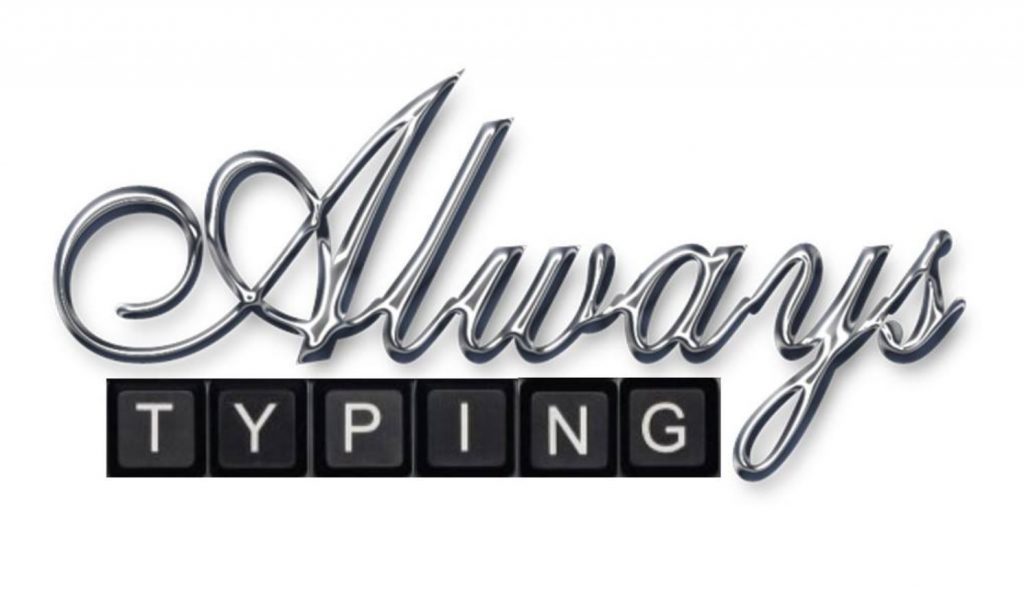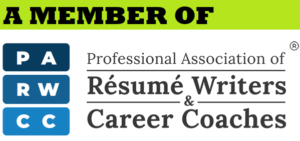The recent wave of federal layoffs has created uncertainty for thousands of government employees. With shifting political priorities, restructuring, and an increased focus on government efficiency, many workers are now facing the reality of transitioning out of federal employment. Unlike past layoffs, these changes are happening on a larger scale and with different economic conditions, making it critical for affected employees to understand their next steps. If you’re a federal employee impacted by these changes, you might be wondering: What does the future hold? Where are my best job opportunities? How do I make myself competitive in today’s job market? This guide will help you navigate the current landscape and position yourself for success in the private sector or other employment opportunities. Understanding the Federal Layoffs The recent federal layoffs have significantly impacted the landscape of government employment, leading to widespread uncertainty among federal workers. To navigate this challenging environment, it’s essential to grasp the underlying causes, the scope of affected positions, and the broader implications for the public sector. Causes of the Federal Layoffs Several key factors have contributed to the current wave of federal layoffs: Budgetary Constraints and Policy Shifts: The administration’s emphasis on reducing government spending has led to substantial budget cuts across various federal agencies. This fiscal tightening aligns with policy shifts aimed at decreasing the federal workforce and reallocating resources to other priorities. For instance, the Department of Education has faced significant staff reductions, resulting in the termination of numerous research programs and the wastage of years of work and millions of dollars. Agency Restructuring and Efficiency Measures: Initiatives to streamline government operations have prompted agencies to restructure, often leading to workforce reductions. The Department of Government Efficiency (DOGE), led by Elon Musk, has been instrumental in these efforts, targeting a 25% reduction in federal real estate and associated personnel. Elimination of Specific Departments: In some cases, entire departments have been targeted for closure to decentralize control and return authority to the states. Notably, the administration announced plans to shut down the Department of Education, aiming to delegate education authority back to the states while maintaining essential services. Impacted Agencies and Positions The layoffs have not been uniform across the federal government; certain agencies and positions have been more affected than others: Department of Education: Facing plans to eliminate nearly half its workforce, the Department has seen the cancellation of over 160 research contracts valued at $900 million, severely impacting educational research efforts. Department of Veterans Affairs (VA): Proposed budget cuts could result in the reduction of up to 80,000 employees, raising concerns about the quality of services provided to veterans. Probationary Employees: Individuals with less than a year of service, lacking full civil service protections, have been particularly vulnerable. As of February 2025, approximately 30,000 such workers had been laid off or fired, with several lawsuits alleging the dismissals were illegal. Diversity and Inclusion Programs: Executive orders eliminating diversity initiatives have led to the suspension of funding for related programs, termination of probationary employees, and closure of diversity offices within agencies like NASA, affecting the space science community. Broader Implications The ramifications of these layoffs extend beyond the immediate loss of employment: Service Delivery: Significant staff reductions threaten the capacity of federal agencies to effectively serve the public. For example, cuts at the VA have raised alarms about delayed patient care and inadequate oversight, prompting demands for the reversal of these decisions. Economic Ripple Effects: Widespread layoffs can lead to reduced consumer spending, potentially dampening economic growth. While the overall labor market remains healthy, with low unemployment rates, the long-term effects of federal job cuts on the economy warrant close monitoring. Legal Challenges and Reinstatements: The swift execution of layoffs has led to complex legal battles. Courts have ordered the temporary reinstatement of thousands of fired federal employees, complicating the administration’s efforts to reduce the workforce. Understanding these facets of the federal layoffs is crucial for affected employees as they navigate their career transitions and for stakeholders assessing the future of public sector employment. How Federal Employees Can Successfully Move from Public Sector to Private After a Layoff Despite layoffs, many industries are eager to hire professionals with federal experience. Here are some of the best career paths for displaced government employees: 1. Government Contracting & Consulting Major consulting firms like Deloitte, Booz Allen Hamilton, and Accenture actively hire former government employees. Private defense contractors, including Lockheed Martin and Northrop Grumman, need professionals with federal expertise. 2. Private Sector Policy & Compliance Roles Companies need regulatory compliance experts to help them navigate federal and state regulations. Risk management and legal compliance positions are in high demand in industries like finance, healthcare, and energy. 3. Technology & Cybersecurity The cybersecurity sector is experiencing explosive growth, with a strong need for professionals familiar with government security protocols. Former federal IT professionals can find opportunities at companies like Amazon Web Services (AWS), Microsoft, and Palantir. 4. Healthcare Administration & Policy Organizations like hospitals, pharmaceutical companies, and health policy think tanks value professionals with government health policy experience. 5. Nonprofits & International Organizations Many former federal employees find meaningful careers at organizations like the United Nations, World Bank, and international NGOs. Resume Strategies for Moving from Public Sector to Private Sector Jobs Making the Transition: Why Your Federal Resume Won’t Work in the Private Sector One of the hardest adjustments for federal employees transitioning into private-sector jobs is rethinking their resume. Many government professionals are used to long, highly detailed federal resumes—sometimes stretching five or more pages—filled with job descriptions, references, salary history, and even supervisor names. In contrast, private-sector hiring managers spend an average of six to seven seconds scanning a resume before deciding whether to read further. That’s right—mere seconds. Always Typing Resumes recently worked with a former federal employee who had spent years in government service and was applying to private-sector jobs for the first time. After their federal resume was written into a concise, two-page format optimized for corporate hiring managers, they sent it
Why You Struggle to Define Your Career Path and How to Overcome It
Choosing a career path is one of the most significant decisions you’ll ever make. It’s the foundation for your future, yet for many recent graduates and early-career professionals, this choice can be incredibly challenging. You might feel lost, overwhelmed, or unsure about which direction to take. The good news is, you’re not alone. Many people struggle to choose their career path, and it’s okay to feel out of sorts. In this article, we’ll explore why this struggle exists, offer tips to help you overcome it, and guide you on what to do once you find your niche. Understanding the Struggle to Define a Career Path Finding the right career path isn’t always straightforward. You might have been told that you can do anything, but with so many options, choosing one can feel overwhelming. The struggle often stems from a combination of internal and external factors. One of the biggest challenges is the sheer number of options available. With so many potential careers to choose from, it’s easy to feel paralyzed by the decision. Additionally, if you haven’t had much work experience, it can be difficult to know what you’re good at or what you might enjoy. This lack of self-awareness can make the decision even harder. Societal Pressure and Expectations Society, including family, friends, and even social media, can significantly influence your career choices. You might feel pressured to pursue a particular path because it’s considered prestigious or because it’s what your parents want. However, choosing a career based on others’ expectations can lead to dissatisfaction and burnout. The myth of the “perfect job” also adds to the pressure. Many people believe there’s one ideal job out there that’s perfectly suited for them. This belief can make it even harder to make a decision because you’re constantly searching for that elusive perfect fit. The Fear of Making the Wrong Choice Fear is another major factor that holds people back from choosing a career path. You might worry about making the wrong choice and ending up in a job you hate. This fear can lead to analysis paralysis, where you overthink every option and struggle to make a decision. Remember, no choice is set in stone. It’s okay to change direction if something doesn’t work out. The Role of Self-Discovery in Career Choice Before you can choose a career, you need to know yourself. Self-discovery is a critical part of defining your career path. It involves understanding your interests, strengths, and values. What are you passionate about? What do you enjoy doing in your free time? What are your natural talents? Personality tests, like the Myers-Briggs Type Indicator or the Holland Code, can help you gain insight into your preferences and strengths. Reflecting on past experiences and feedback from others can also provide valuable clues about what career might suit you best. The Impact of Limited Experience When you’re just starting out, you might not have a lot of work experience to guide your career choice. This lack of experience can limit your understanding of different industries and roles, making it harder to choose a path. One way to overcome this is by gaining experience through internships, part-time jobs, or volunteer work. These opportunities allow you to explore different fields, develop new skills, and get a feel for what you might like or dislike. The more you experience, the easier it becomes to define your career path. The Problem with Following Trends It’s easy to get caught up in following trends, especially when everyone seems to be pursuing the same “hot” careers. However, just because a career is popular doesn’t mean it’s right for you. Chasing trends can lead to dissatisfaction, especially if you choose a career solely for its perceived prestige or earning potential. It’s important to consider what will make you happy and fulfilled in the long term, rather than just what’s trendy right now. A career that aligns with your values and interests is more likely to bring you long-term satisfaction. Why Career Path Choices Aren’t Permanent One of the most liberating realizations is that your career choice doesn’t have to be permanent. The job market is constantly evolving, and many people change careers multiple times throughout their lives. What matters most is gaining transferable skills and staying adaptable. If you start in one field and later realize it’s not the right fit, it’s okay to pivot. Many skills, like communication, problem-solving, and teamwork, are valuable in a wide range of careers. Embracing change and being open to new opportunities can lead to a more fulfilling career. Steps to Overcome the Struggle If you’re struggling to define your career path, there are several steps you can take to gain clarity. Self-Reflection and Journaling: Take time to reflect on your interests, strengths, and values. Journaling can help you organize your thoughts and identify patterns in what you enjoy doing. Seek Mentorship and Advice: Talk to people who are already working in fields you’re interested in. They can offer valuable insights and advice based on their experiences. Take Career Assessments: Consider taking career assessments or personality tests to gain a better understanding of your strengths and potential career matches. Exploring Career Options Once you’ve gained some self-awareness, the next step is to explore different career options. Start by researching industries and roles that interest you. Look into the day-to-day responsibilities, required skills, and potential career growth. Conducting informational interviews is another excellent way to learn about different careers. Reach out to professionals in your network or on LinkedIn and ask if they’d be willing to share their experiences. These conversations can provide valuable insights that you won’t find in a job description. Building Experience While Deciding While you’re still figuring out your career path, it’s important to gain experience. Internships, part-time jobs, and volunteering are all great ways to build your resume and develop new skills. These experiences can also help you determine whether a particular field is right for you. Gaining experience doesn’t just make you more marketable
Navigating Security Clearance: An Introductory Guide for Your Career
Getting security clearance for your job might seem complicated. But don’t worry; this guide is here to help you understand the basics. Whether you’re just starting to apply for a job that needs security clearance or you want to know more about it, this guide gives you a simple overview of what you need to know. Understanding Security Clearance and Why It Matters The whole idea of security clearance can be a bit puzzling, and you might wonder why it’s such a big deal. Well, if you’re aiming for a job that requires security clearance, it’s vital to get the hang of it. Getting a security clearance matters for several important reasons: Access to Classified Information: Security clearance is a prerequisite for accessing classified or sensitive information. Many government agencies and organizations deal with confidential data related to national security, defense, intelligence, and more. Having a security clearance demonstrates that you can be trusted with this sensitive information. Job Requirements: Some jobs, especially those in government, defense, intelligence, or roles involving critical infrastructure, mandate security clearance as a job requirement. Without it, you may not be eligible for these positions. Career Opportunities: Having security clearance can open doors to a wide range of career opportunities in both the public and private sectors. Jobs that require security clearance often come with competitive salaries and benefits. National Security: Security clearances help ensure that individuals working in sensitive roles are loyal, trustworthy, and reliable. This safeguards national security interests by reducing the risk of espionage, leaks, or unauthorized access to classified information. International Travel and Collaboration: Security-cleared individuals may be required to collaborate with international partners or travel to secure locations. Security clearance facilitates international cooperation and ensures that classified information is handled appropriately. Personal and Professional Growth: Obtaining and maintaining security clearance can be a mark of professional achievement and integrity. It demonstrates your commitment to upholding the highest standards of ethics and trustworthiness. Understanding the Spectrum of Clearance Levels Security clearance isn’t a one-size-fits-all credential; it encompasses three distinct levels, each tailored to the specific responsibilities and duties they entail: Confidential: This is the lowest level, used for less sensitive jobs. Secret: A bit more serious, this is for jobs with somewhat sensitive information. Top Secret: The highest level, for very important jobs dealing with super sensitive stuff. Keeping Tabs with Periodic Reinvestigations For jobs requiring Secret or Top Secret clearance, HR doesn’t just grant it and forget about it. They periodically check to make sure you’re still a good fit for the clearance. Here’s how it works: Background Rechecks: HR may revisit your background to see if anything has changed since you first got clearance. They want to ensure you’re still trustworthy. Interviews and Updates: Sometimes, they’ll talk to people who know you, like friends or coworkers, to make sure you’re still dependable and haven’t gotten involved in anything risky. Ongoing Evaluation: HR keeps an eye on your conduct, both at work and in your personal life, to ensure you’re maintaining the level of integrity required for your clearance. This periodic check-up is all about making sure that as circumstances change, your clearance still aligns with your role. It’s like a safety net to protect sensitive information and maintain national security. Evaluating the Factors Influencing Your Security Clearance Gaining security clearance isn’t just a procedural formality; it involves a meticulous assessment of various factors, including: Your Character: They want to know if you’re a stable, trustworthy, reliable, and honest person. They check if you make good decisions and stay loyal to the United States. Background Checks: They dig into your past to see if there’s anything that might raise concerns. They talk to people who know you and look at your records. Fingerprint Analysis: They use your fingerprints to confirm your identity and check if you have a clean record. And here’s an important point: They don’t care about things like your race, color, religion, sex, sexual orientation, or disabilities when they decide if you can get security clearance. It’s all about your behavior and trustworthiness. How to Apply for Security Clearance When you’re all set to start your new job, you’ll need to go through a process to get security clearance. It involves a few important steps: Fill Out Forms: You’ll have to fill out a bunch of forms, sort of like paperwork. This collection of forms is often called the “security package.” Background Checks: They’ll look into your history to make sure everything checks out. This includes checking your records and talking to people who know you, like friends and coworkers. They might also use your fingerprints to double-check your identity. Interviews: You might need to chat with some people about your life and work. It’s like a friendly conversation to learn more about you. Determining Eligibility: After all these checks, they decide if you’re good to go for security clearance. It’s like getting a green light. Getting the News: If you’re eligible, they’ll let you know, so you’re in the clear to start your job. If not, they’ll tell you why. So, getting security clearance involves a bunch of steps to make sure you’re the right fit for the job. Why Some People Don’t Get Security Clearance Sometimes, people can’t get security clearance for certain reasons. Here are some common ones: Money Problems: When you’re responsible for handling sensitive information, they want to be sure you won’t be influenced by financial troubles. If you have a lot of debt or struggle to manage your finances, you might be seen as vulnerable to financial pressures. People in such situations could potentially be tempted to share secrets for financial gain or relief from their debts. So, they check to make sure you have your financial house in order. Bad Behavior: Security clearance is all about trustworthiness. If you’ve been dishonest in the past, especially when it comes to important things like filling out forms truthfully, they might question whether you’re honest enough for the job. Honesty is crucial
Global Employment: Resumes and CVs Across Different Parts of the World
In an increasingly interconnected world, the pursuit of work opportunities beyond one’s home country has become a common aspiration for many professionals. Whether it’s the allure of exploring new cultures, seeking better job prospects, or simply broadening one’s horizons, the concept of finding work abroad has gained significant traction. However, this endeavor comes with its own set of challenges, including adapting to the diverse practices of crafting application documents like resumes and CVs. These documents serve as the initial gateways for individuals to secure interviews and, ultimately, their dream jobs. This article delves into the intricacies of resumes and CVs across various regions, focusing on the differences between the United States and international preferences while shedding light on why these variations exist and how they impact the global job search. Resumes vs. CVs: A global perspective The foundational distinction between resumes and CVs lies in their purpose and scope. Resumes are concise, one-to-two-page summaries of an individual’s qualifications, work experience, skills, and achievements. Their succinct nature aligns with the United States’ and other countries’ preferences for a document that swiftly highlights key competencies without delving into excessive personal details. On the other hand, CVs, short for curriculum vitae, are more extensive documents, offering an in-depth overview of a candidate’s professional and academic journey. The scope of CVs often extends beyond work experience to encompass research, academic pursuits, publications, and awards. The United States, Australia, and Canada: Resumes as legal safeguards In the United States, Australia, and Canada, the use of resumes is strongly influenced by anti-discrimination laws. These countries advocate for a streamlined approach to application documents to prevent potential biases based on personal information. Resumes adhere to a format that focuses on professional achievements, skills, and qualifications, sidelining personal attributes that might lead to unconscious biases. The resume’s brevity ensures that hiring decisions are based on merit rather than extraneous details. The UK, New Zealand, Asia, and the European Union: Embracing comprehensive CVs Conversely, countries like the United Kingdom, New Zealand, various Asian nations, and the European Union generally embrace CVs due to their comprehensive nature. These regions value a holistic understanding of a candidate’s background, appreciating the inclusion of a wide array of experiences, such as academic accomplishments, research contributions, and awards. Hiring managers across these areas seek a nuanced depiction of an applicant’s journey, enabling them to make informed decisions based on a broader spectrum of qualifications. Country-specific practices United States: Resumes are the go-to document for job applications, emphasizing qualifications and achievements. Canada: Similar to the U.S., resumes are preferred to maintain a focus on professional accomplishments. Australia: Resumes dominate the application process, ensuring equal opportunity by minimizing personal information. United Kingdom: CVs are standard, allowing candidates to provide a holistic view of their professional and academic history. New Zealand: CVs are favored for their comprehensive nature, enabling candidates to showcase a diverse range of accomplishments. European Union: CVs are widely used to present a thorough overview of a candidate’s background, including academic and research pursuits. Asia: Most Asian countries prefer CVs, valuing a comprehensive picture of a candidate’s qualifications, skills, and experiences. Craft your path forward In the pursuit of international employment opportunities, the variance in document preferences reflects a cultural interplay between professionalism, anti-discrimination measures, and the desire for comprehensive insights. The divide between resumes and CVs exemplifies the evolving landscape of global job searches, where tailored application documents align with distinct legal, cultural, and professional landscapes. As professionals continue to seek diverse career paths across the world, understanding these differences becomes pivotal in crafting impactful application materials that resonate with employers and transcend borders. Elevate Your Global Job Search with Expertly Crafted Resumes Navigating the intricacies of international employment demands a tailored approach that aligns with regional preferences. Are you ready to seize opportunities around the world? Our professional resume writing services are here to help you shine on the global stage. Unlock Your Potential: Let our experienced team create resumes that transcend borders, showcasing your qualifications and accomplishments while adhering to cultural norms and legal frameworks. Whether you’re eyeing positions in the United States, Canada, Europe, Asia, or beyond, we understand the nuances that make your application stand out. Crafted for Success: With a deep understanding of diverse industries and regions, we craft resumes that capture your unique journey, skills, and achievements. Our commitment to excellence ensures that your application materials align with the expectations of hiring managers worldwide. Secure Your Dream Job: Don’t leave your international career to chance. Join countless professionals who have unlocked opportunities with our tailored resume-writing services. Your next adventure awaits – let us help you seize it. Contact Us Today
Decoding Employment Background Checks: What You Need to Know
In today’s competitive job market, securing a new job often entails embarking on a journey that spans around six weeks—from the initial application submission to the long-awaited offer letter. However, as candidates edge closer to the finish line, there’s a crucial juncture that demands their attention: the employment background check. This meticulous process serves as the final gateway, determining the bridge between aspiration and accomplishment. Employers recognize that making the right hiring decisions is paramount, as each addition to their team forms an integral piece of the larger organizational puzzle. With a plethora of candidates vying for the same opportunities, employers are investing more than ever in methods to ensure that their selections are not just proficient but also a seamless fit within their organizational fabric. Background checks have emerged as a strategic tool in this endeavor, enabling employers to gain a more holistic understanding of candidates beyond their resumes and interviews. The process of conducting employment background checks serves as an instrumental component in enabling employers to assess candidates in terms of trustworthiness, reliability, and alignment with company values. The employment background check, once perceived as a formality, has now transformed into a crucial determinant of a candidate’s trajectory. The journey doesn’t end with a job offer; it commences with the trust an employer places in their new hire’s potential to positively impact the company’s journey ahead. Understanding Employment Background Checks Employment background checks scrutinize various aspects of your history, including employment, credit, driving records, and criminal past. Honesty on your job application is crucial, especially regarding job dates and titles. Even small discrepancies can impact your candidacy. Employment History Even seemingly minor discrepancies can have substantial implications for an applicant’s credibility. Consider a scenario where an applicant extends the duration of a previous job by a few months to fill a gap in their resume. While this might appear innocuous, such embellishments can cast a shadow of doubt over an applicant’s integrity. Why is precision in employment history so vital? Employers often view your job history as a testament to your reliability and consistency. A candidate who meticulously documents their work experience showcases qualities of thoroughness and conscientiousness, traits that resonate positively with prospective employers. The ATS Detective: How Applicant Tracking Systems Unveil Discrepancies Enter the realm of Applicant Tracking Systems (ATS)—software employed by many companies to streamline their recruitment processes. These digital detectives scrutinize resumes for keywords, qualifications, and, yes, employment details. When it comes to dates, ATS systems are more than just a digital calendar; they are the gatekeepers of accuracy. ATS systems are designed to highlight inconsistencies, making it increasingly challenging for discrepancies to fly under the radar. If an applicant’s claimed employment dates don’t align with the data inputted, these systems raise red flags that can trigger further scrutiny. This means that not only is precision essential for portraying yourself accurately, but also for navigating through these automated gatekeepers. Applicants often underestimate the ATS’s role in the selection process. In a competitive job market, where numerous resumes vie for attention, ATS systems serve as the first line of defense. By providing accurate and precise employment history, you’re ensuring that your resume passes through this initial screening hurdle and lands in the hands of hiring managers. Credit History The examination of credit history during an employment background check goes beyond a mere financial inquiry—it offers employers a glimpse into your financial responsibility and decision-making skills. While credit scores are not typically included, this inspection provides valuable insights, particularly for roles with financial responsibilities, access to sensitive data, or decision-making authority on behalf of the company. Roles with Financial Responsibilities For positions that involve financial management, such as accountants, financial analysts, or roles directly handling transactions, credit history becomes a pivotal consideration. Employers seek candidates who can aptly manage financial matters, both on a personal and professional level. A positive credit history implies a track record of managing finances prudently, which can extend to fiscal responsibility within the organization. Safeguarding Sensitive Data: Trust and Confidentiality In an era defined by data breaches and cyber threats, protecting sensitive information is paramount. Roles that involve access to confidential data, customer information, or trade secrets require individuals of utmost integrity. Employers recognize that financial pressures can potentially sway an individual’s decisions. A thorough credit history examination helps ensure that the candidate’s financial standing is not vulnerable to outside influence, safeguarding against potential security breaches. Making Crucial Financial Decisions: Integrity in the Spotlight Consider roles where individuals are entrusted with making financial decisions on behalf of the company, such as procurement managers, executives overseeing budgets, or those negotiating contracts. A history of prudent financial management showcased through credit history signifies a candidate’s ability to make sound judgments, free from personal financial distractions. A Holistic Perspective: Financial Fitness and Company Well-being In essence, credit history checks provide a window into an applicant’s financial fitness. By delving into how one manages financial obligations, employers can glean insights into their overall responsibility, integrity, and ability to uphold fiduciary duties. In a world where corporate transparency and ethical conduct are valued, this assessment is pivotal. Employers acknowledge that credit history is a multifaceted metric and that individuals can encounter challenges that impact it. What matters is transparency. Candidates who proactively address any potential concerns or provide context behind credit history irregularities display accountability—a quality that resonates positively with employers. Driving Records In certain industries and job roles, a clean driving record serves as a critical marker of reliability, responsibility, and professionalism. While often associated with roles requiring physical mobility, its implications extend far beyond simply operating a vehicle. From delivery services to sales roles entailing frequent travel, a pristine driving record not only underscores an individual’s commitment to safety but also reduces liability for the employer. Delivery Services: Safeguarding Timely Deliveries and Customer Trust Imagine a scenario in the realm of delivery services—a domain where time-sensitive shipments and customer expectations collide. A delivery driver’s clean driving record isn’t merely a reflection of their
How to Get a Hiring Manager’s Attention with a Letter of Interest
Almost everyone, at some point in their career, will have a goal to work at a particular company. Maybe it’s less than a goal and more like a dream. Either way, there’s a company that you’d love to work for, but they never seem to be hiring. How do you get your foot in the door of your dream company if they have no job openings? The best way is to send a letter of interest. This letter will get your name in front of a would-be hiring manager and showcase a few of your skills so they know what value you bring. There is a particular way to write a letter of interest. Keep reading to learn how to get a hiring manager’s attention with a letter of interest. What is the purpose of a letter of interest? A letter of interest conveys that you are interested in working for a company. It highlights some of your skills and accomplishments and illustrates the advantages a company would gain if you were a part of their team. Recruiting managers appreciate it when potential candidates show initiative. A letter of interest is a marketing technique akin to cold calling. Keep it short, yet enlightening as it is likely hiring managers and recruiters are unlikely to read anything that goes on and on. This isn’t the time to list everything you’ve ever achieved. It’s just a glimpse into your career history. Since everything you send a company should have a call to action, use the letter of interest to request a meeting. This meeting could turn out to be an interview or it could be a short get-to-know-each-other opportunity. What should be included in a letter of interest? When writing a letter of interest for a job, it is essential to express why the company interests you. Showcase your talent and incorporate an example of how your talent effectively improved an aspect of business for a previous employer. The goal is to use your letter of interest to pique the hiring manager’s interest in you and should contain the following: Introduction: Begin by introducing yourself and explaining why you are interested in the company or organization. Purpose: Clearly state the purpose of the letter, such as inquiring about job opportunities, requesting an informational interview, or expressing your interest in a particular field. Background: Provide a brief summary of your background, including your relevant education, work experience, and skills. Value: Explain how you can add value to the company or organization. Highlight your achievements and successes and how they can be relevant to the company’s needs. Connection: If possible, establish a connection between your experience and the company’s mission or values. Call-to-Action: End the letter by stating what you would like to happen next. This could be a request for an informational interview, a request to be considered for future job openings, or simply a request for further communication. Contact Information: Include your full name, email address, phone number, and any other relevant contact information, like links to online portfolios. How to write a letter of interest Since your letter is meant to get the attention of the hiring manager, remember to keep it concise, professional, and tailored to the company you are interested in using these tips: Use a specific contact person When possible, you want to address a human being using their name. Look the company up on LinkedIn or Glassdoor to try to find out who the manager is and write the letter addressed to that person. However, if you are unable to find a specific person, you can use the greeting, “Dear Hiring Manager.” Research Make sure to apprise yourself with relevant details about the company. Your mission is to find out what type of employee the company looks for in a candidate, then exhibit those qualifications within your letter of interest. Review company social media accounts for ideas about the company’s culture from their posts. Research their job listings for particulars in their requirements. Introduce yourself Explain what intrigued you about the company and why you’ve reached out to the recruiting manager. Describe your relevant experience, skills, and interests that align with the company’s mission or goals. Be specific and use examples to demonstrate your qualifications. Demonstrate value What value do you bring to the table? This is where you display your capabilities. If you were instrumental in elevating any gains or diminishing the loss for a past company, include that detail. Capture the hiring manager’s attention by showing them how you can help them achieve goals. The Closing You want to close the letter with a request. Inform the reader that you are interested in an informational interview. This will give you a chance to meet with the hiring manager and discuss more details about the company. Then close with a professional tone and include your contact information. Review the letter Before sending your letter, review it for grammar, spelling, and clarity. You’d be surprised how many letters reach hiring managers with simple spelling mistakes. Utilize robust and concise language and make sure there are no misspellings. Example letter [Your Name] [Your Address] [City, State ZIP Code] [Your Email] [Your Phone Number] Jan 1, 2023 [Recipient’s Name] [Company Name] [Address] [City, State ZIP Code] Dear John Smith, I recently read an article in Writer’s Daily that highlighted your social media expansion. When the company’s Instagram reached 500,000 followers last month, I knew I wanted to be part of the team that brought your company’s readership to 1 million followers. I am confident that I would bring immediate value to your team and would love to find out how to become a member. I have 7 years of experience working in digital promotions and would bring a track record of social media management to your expansion team. Recently, I was involved in a massive project where I was instrumental in increasing social media engagement by 65%. Additionally, I improved online sales revenue by 45%.








